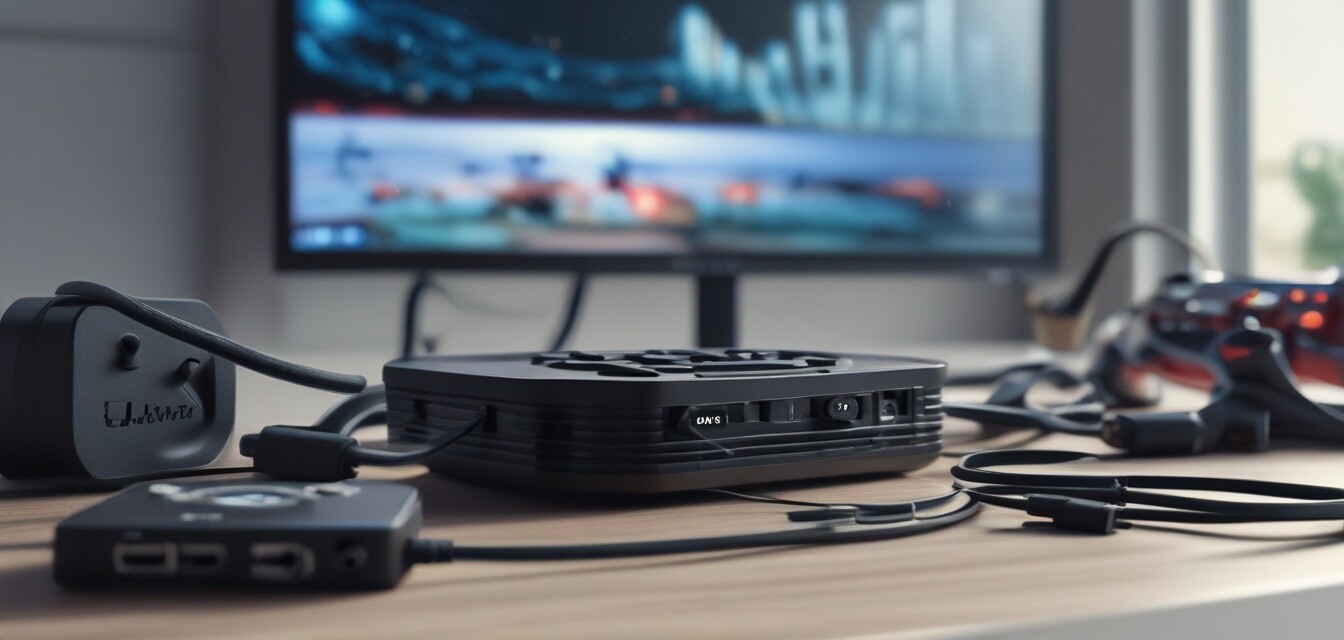
Essential cables and adapters for gamers
Key Takeaways
- Cables and adapters are crucial for a seamless gaming experience.
- Different games and setups require specific types of cables.
- Connectivity options like Ethernet, HDMI, and USB are essential.
- Investing in quality cables can prevent future connectivity issues.
- Knowing the right accessories can enhance your gaming setup significantly.
In the world of gaming, having the right setup can mean the difference between victory and defeat. Essential cables and adapters play a critical role in ensuring your gaming experience is smooth and uninterrupted. From connecting devices to ensuring data transfer, these accessories are indispensable for every gamer. In this article, we will discuss the types of cables and adapters you need to consider, helping you set up a seamless gaming environment.
Types of essential cables and adapters
Every gamer has unique needs, but certain cables and adapters are universally necessary for an optimal gaming experience. Here’s a breakdown of the most essential ones:
| Cable/Adapter | Description | Common Uses |
|---|---|---|
| HDMI Cable | Transfers high-definition video and audio. | Connecting consoles, PCs, and monitors. |
| USB-C Cable | Multi-functional cable for power and data transfer. | Connecting peripherals like controllers and headsets. |
| Ethernet Cable | Wired internet connection for stable gameplay. | Connecting your gaming device to the router. |
| DisplayPort Cable | High-performance video interface. | Connecting gaming monitors for high refresh rates. |
| Audio Jack Cable | Transfers audio signals. | Connecting headsets or speaker systems. |
Importance of quality connections
Selecting high-quality cables and adapters not only improves gaming performance but also extends the lifespan of your equipment. Low-quality cables can result in poor video/audio quality, connection drops, and ultimately, additional costs for replacements. It’s advisable to invest in reputable brands that offer durable products.
Common accessories and their compatibility
Understanding your gaming devices is essential for choosing the right accessories. Here's a look at the common gaming devices and their compatibility with various cables and adapters:
| Device | Compatible Cables/Adapters |
|---|---|
| Gaming PC | HDMI, DisplayPort, USB-C |
| Console (PS5/Xbox Series X) | HDMI, Optical Audio, USB-C |
| Gaming Monitors | HDMI, DisplayPort |
| VR Headsets | USB-C, HDMI, Audio Jack |
Understanding connectors
Knowing about the different connectors can help gamers choose the right cable for their setup. Below are some common connectors and their functions:
- HDMI: Most common for video/audio transmission.
- DisplayPort: Typically used for higher resolutions and refresh rates.
- USB-C: Versatile and widely adopted for various gadgets.
- RCA: Older audio/video transmission standard, less commonly used now.
Where to find quality cables and adapters
When looking for quality gaming accessories, consider checking out our gaming accessories category for a wide selection of reliable products. Shopping with reputable brands ensures that you receive what you pay for and that your gaming setup operates as intended.
Key considerations when purchasing cables and adapters
Beginner's tips
- Always check compatibility with your devices before purchase.
- Look for cables rated for gaming to ensure performance.
- Consider the length of the cables to suit your setup layout.
- Read product reviews to gauge reliability.
- Keep a few spare cables and adapters for quick replacements.
Conclusion
Having the right cables and adapters is crucial for every gamer aiming for an optimal gaming experience. Understanding the options available and investing in quality products can lead to seamless connections and uninterrupted gameplay. Be sure to keep your cables organized and in good condition to maximize their lifespan and functionality. Explore our other articles in the Accessories Spotlight category to enhance your gaming experience further!
Pros
- Trouble-free and reliable connections.
- High-quality cables enhance gaming performance.
- Wide range of cables available for different devices.
- Ease of setup with the right accessories.
Cons
- Cost can add up if opting for high-end options.
- Compatibility issues if not researched beforehand.
- Cables can get tangled if not managed properly.
